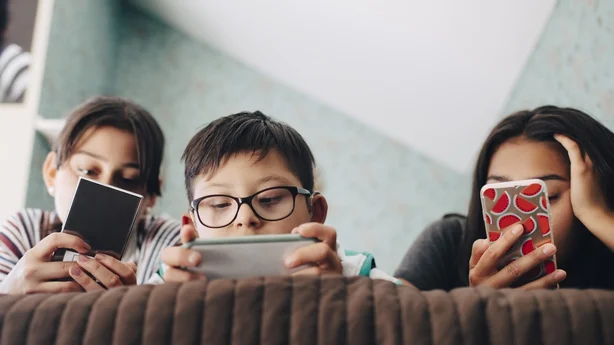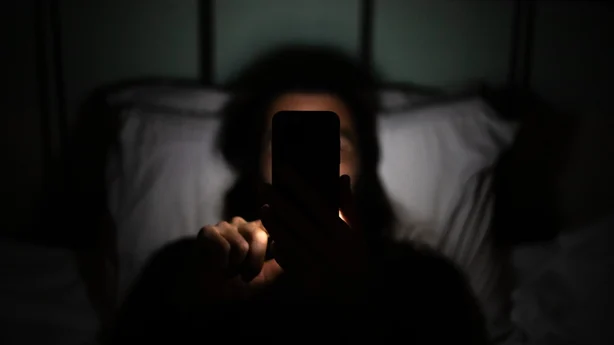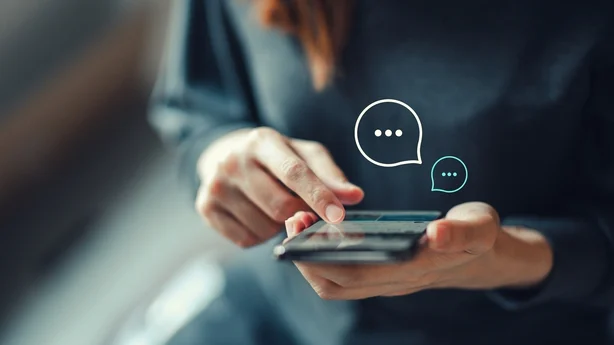Cyberpsychologist Prof. Mary Aiken talks to Cormac on Drivetime about how to protect children from harmful content online, as tech executives are grilled at Leinster House. Listen back above.
Very young children are seeing videos on self-harm, starvation and suicidal ideation on social media platforms - and it needs to stop, so says according to cyberpsychologist Professor Mary Aiken.
Professor Aiken spoke to Cormac Ó hEadhra on Drivetime about her concerns. They discussed the efforts by the Irish governments and by companies like TikTok to promote online safety for children, as well as a recent Prime Time report on what children actually see on video sharing apps.
A TikTok spokesperson has told a joint Oireachtas committee that the company is working hard to make the platform safe for teenagers and children. Among their suite of measures to achieve this is the TikTok Global Youth Council, launched last month.

In response, expert on the impact of technology on human behaviour Professor Mary Aiken tells Cormac there is evidence that teenagers and young children are accessing extreme self-harm content on social media.
She believes social media platforms are not doing enough to prevent this: "I’ve been speaking about these issues for, what, over 15 years now? And I’ve heard those same promises over and over again."
Prof. Aiken says this goes against TikTok’s claims: "You have testimony from a social media company saying one thing, and then you have a research effort by Prime Time finding the opposite – so what’s true?"
Professor Aiken says the results of the Prime Time reporting were disturbing: "That 'child’ was dragged into an abyss of suicidal content, of extreme violence, of self-starvation content, of self-harm content; then something, the evidence would say, something is going radically wrong online."

Cormac points out that the accounts in question were fake and set up for research purposes; so no harm was done to actual children. Mary Aiken agreed no children were harmed in that case, but says the distinction doesn’t matter – in fact that is the point, she says.
The algorithm can't detect a child's real age at the sign-up stage, as there is no age verification.
Dr. Aiken believes that if companies were forced to release data on the age profile of their users – which she thinks should happen right away – she’s certain that it would show huge numbers of children younger than 13 using the app:
"I can guarantee in that age demographic profile, in the number of people who have signed up to join their platform; I can absolutely 100% predict there will be a huge spike at 13, inordinate to the number of 13-year-olds in our population. Why? Because every 8, 9, 10 12-year-old will click 'I am 13'. So the evidence is there. We just have not done what we need to do."
Cormac raises the Online Safety and Media Regulation Act (2022) and says the government has taken action, including empowering Coimisiún na Meán to tackle this issue. That’s all very well, Prof Aiken says, but it’s not currently preventing children from seeing content damaging to their mental and physical health; she believes.
Professor Aiken brings up the EU Audiovisual Media Services Directive, which came into force across Europe in 2018. It has a section on the protection of minors, but Ireland has so far failed to comply with the directive and it's led to huge fines being levied on Ireland, she says:
"We were fined in February of this year for not complying with that directive. So Ireland was fined €2.5 million by the European Court because we have not as yet complied with the safety protocols for children in that directive."

What are parents to do? Should they immediately take the smartphones away from their children and younger teens? Prof. Aiken says no, that’s not the answer.
The expert in cyberpsychology says the answer lies in law and in the regulation of social media platforms, and not in any actions taken within families:
"The relationship is not between the parent, the child and the phone. This is a policy, regulatory piece."
She believes that parents should get together and become active campaigners for regulation in cyberspace:
"Parents should not be left to paddle their own canoe in cyberspace. The companies that are monetising the attention of children profiting in this space have to be held accountable."
If you’ve been affected by any of the issues raised, you can find helpline information here.
More great interviews and reporting from Drivetime here.
Disclaimer: The copyright of this article belongs to the original author. Reposting this article is solely for the purpose of information dissemination and does not constitute any investment advice. If there is any infringement, please contact us immediately. We will make corrections or deletions as necessary. Thank you.






